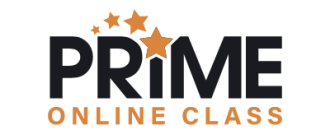Online classes are becoming more popular among students, particularly those pursuing higher education. These classes offer the convenience of attending from anywhere, at any time. However, many students wonder if online classes are more complicated. This article will explore the workings of online college classes, the difficulty level, their benefits when taking them, accreditation and financial aid, cheating, and their efficacy compared to traditional classes.
Understanding the Mechanics of Online College Courses
Online college classes follow a similar format as traditional classes. However, instead of attending classes physically, students attend them remotely via the Internet. In most cases, students are given a login credential to access a learning management system (LMS). The LMS serves as a virtual classroom where students can access course materials, assignments, discussion forums, and communication tools such as email and video chat. The course content is typically structured in modules spread over a certain period, and each module has particular readings, quizzes, and assignments that students are expected to complete.
Determining the Difficulty of Online Courses
Online classes’ perceived difficulty level varies from student to student. For some, online courses may be more accessible as they offer more flexibility and allow them to complete coursework at their own pace. On the other hand, it may be more challenging for students who need more self-discipline, time-management skills, and reliable access to the Internet. Online classes also require students to be self-motivated and proactive in seeking help when encountering difficulties. Some students may find the technical skills to navigate online learning tools challenging. You can learn about the advantages and disadvantages of online courses.
Advantages of Enrolling in Online Courses
Despite the challenges, taking classes online has numerous benefits. For instance, online courses offer flexibility in terms of scheduling, allowing students to balance their academic pursuits with work, family, and other commitments. Additionally, these classes are often cheaper than traditional classes, and students can save on transportation and accommodation costs. It would be helpful if a student asked an online tutor to take my online class for me while he is in traveling with family or friends. Online classes also give students access to various courses and resources from different institutions, allowing for more diverse learning experiences. Finally, online courses prepare students for the increasing use of technology in the workplace, making them more competitive in the job market.
Choosing Between Online and On-Campus Learning: Factors to Consider
Online classes offer several benefits despite the challenges. They provide flexibility in scheduling, allowing students to balance academic pursuits with other commitments. Additionally, they are usually cheaper than traditional classes, and students can save on transportation and accommodation expenses. Online classes also offer access to various courses and resources from different institutions, providing diverse learning experiences. Finally, online classes prepare students for technology in the workplace, making them more competitive in the job market.
Accreditation Requirements for Online Education
It is an important consideration when taking online classes. Accreditation ensures that the course you are taking meets a certain standard of quality and that the credits obtained can be transferred to other institutions or count towards a degree. Students should look for online courses accredited by the same bodies that accredit traditional courses. For instance, the U.S. Department of Education accredits post-secondary institutions in the United States. To verify whether an online class is accredited, students can search the accreditation database maintained by the Department of Education.
Financial Assistance Options for Online Learning
Students may be eligible for financial aid when taking online classes, just like traditional classes. The type of financial assistance available may vary depending on the institution and the program. Some common forms of financial aid include grants, scholarships, loans, and work-study programs. However, students must meet specific eligibility criteria for financial assistance, such as enrolling in a qualifying program and meeting academic standards. To apply for financial aid, students must complete the Free Application for Federal Student Aid (FAFSA) and submit it to their institution.
Academic Dishonesty in Online Learning: Is Cheating Possible?
Cheating in online classes is a prevalent concern for many institutions. However, online courses have several safeguards in place to prevent academic dishonesty. For instance, some institutions use plagiarism detection software to detect copied work. While others require students to take proctored exams, where the exam is supervised remotely through video monitoring. Additionally, some online courses require students to participate in discussion forums or group projects, making it easier for instructors to identify individual student contributions. Cheating in online classes can have severe consequences, including suspension or expulsion from the institution.

